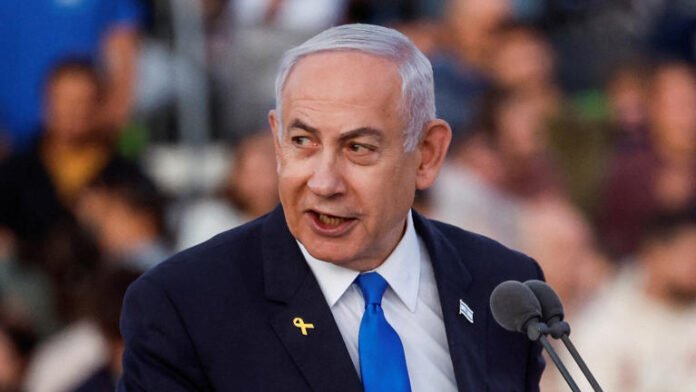The International Criminal Court (ICC) has issued an arrest warrant against Israeli Prime Minister Benjamin Netanyahu, accusing him of war crimes related to the ongoing conflict in Gaza. The move has sparked outrage in Israel and the broader Middle East while raising concerns about the global political implications of such a high-profile legal action against a sitting head of state. The arrest warrant, announced on November 20, 2024, adds another layer of tension to the already volatile situation in the region, which has seen escalating violence and humanitarian crises.
Background of the ICC’s Action
The arrest warrant follows a comprehensive investigation into Israel’s military actions during the ongoing Israel-Gaza conflict. The ICC, based in The Hague, has been scrutinizing the conduct of both Israeli and Palestinian forces for potential violations of international law. While the ICC’s investigation began earlier in 2024, it was only recently that the Court moved to target Netanyahu personally, accusing him of being complicit in war crimes during Israel’s military operations in Gaza, including alleged unlawful airstrikes on civilian areas and the destruction of vital infrastructure.
The ICC’s decision to issue the warrant comes after multiple reports and investigations by international human rights organizations, including Amnesty International and Human Rights Watch, which have accused Israel of disproportionate use of force, leading to widespread civilian casualties. The Israeli government, on the other hand, has consistently defended its military actions as a legitimate response to terrorist attacks from Gaza-based militant groups like Hamas.
Charges Against Netanyahu
The ICC’s arrest warrant outlines several key charges against Netanyahu, including:
- War Crimes and Crimes Against Humanity: The warrant accuses Netanyahu of authorizing and overseeing military operations that disproportionately targeted civilian populations, violating the Geneva Conventions’ principles of distinction and proportionality in armed conflict.
- Indiscriminate Attacks: It is alleged that Netanyahu’s administration knowingly allowed Israeli forces to carry out bombings and airstrikes on densely populated areas in Gaza, resulting in large-scale civilian casualties, including women and children.
- Destruction of Civilian Infrastructure: The Israeli military’s destruction of hospitals, schools, and other civilian structures in Gaza has also been cited as part of the evidence against Netanyahu, with critics arguing that these actions violated international law prohibiting the targeting of civilian infrastructure.
The arrest warrant marks an unprecedented legal action against a sitting Israeli prime minister and represents the ICC’s growing focus on holding leaders accountable for war crimes committed during the ongoing Israel-Palestine conflict.
Israel’s Reaction
The Israeli government, led by Netanyahu, has vehemently rejected the ICC’s warrant, labeling it politically motivated and biased against Israel. Netanyahu, in a televised address, condemned the decision as a “flawed and unjust attempt to undermine Israel’s right to self-defense.” He further accused the ICC of being influenced by international anti-Israel sentiment and called for a re-examination of the Court’s legitimacy.
Israeli officials have made it clear that they will not cooperate with the ICC’s demand for Netanyahu’s arrest, citing Israel’s non-signatory status to the Rome Statute, the treaty that established the ICC. Israel has long refused to recognize the jurisdiction of the ICC, asserting that it is not bound by its rulings. This stance is in line with the Israeli government’s broader opposition to international bodies that it believes unfairly target the Jewish state.
International Reactions
The international community has been divided in its response to the ICC’s arrest warrant against Netanyahu. Western allies, including the United States, have expressed strong support for Israel, reaffirming Israel’s right to defend itself against attacks from Hamas and other militant groups. However, some European countries, particularly those with a strong human rights agenda, have backed the ICC’s investigation and called for accountability for violations of international law, including those committed by state actors.
Human rights organizations have hailed the ICC’s action, calling it a critical step towards justice for the victims of the ongoing conflict. “This is a historic moment,” said Agnes Callamard, Secretary-General of Amnesty International. “For far too long, leaders like Netanyahu have been able to act with impunity, while innocent civilians continue to suffer. The ICC’s warrant sends a strong message that no one is above the law.”
On the other hand, countries in the Middle East, including Iran and Turkey, have praised the ICC’s move, seeing it as a necessary step towards confronting Israeli military actions. These nations have long accused Israel of violating international law and committing atrocities in Gaza, and the arrest warrant has been seen as a symbol of international efforts to hold Israel accountable.
Implications for Netanyahu and Israel
The arrest warrant against Netanyahu is unlikely to lead to immediate legal consequences, given Israel’s refusal to recognize the ICC’s authority. However, the international pressure on Israel is expected to intensify, especially from human rights groups and countries that support Palestinian statehood.
For Netanyahu personally, the warrant is a serious blow to his political standing, especially at a time when Israel is grappling with internal divisions and escalating violence with Palestinian militant groups. While the prime minister remains largely popular in Israel, the ICC’s action could erode his international credibility, especially among European allies and the global community that views Israel’s military actions with increasing skepticism.
The ICC’s arrest warrant against Israeli Prime Minister Benjamin Netanyahu is a landmark development in the Israel-Palestine conflict, signaling the Court’s willingness to hold world leaders accountable for alleged war crimes. While the immediate legal consequences remain uncertain, the political ramifications are clear: the move has intensified the already fraught international debate surrounding Israel’s military actions in Gaza. As the conflict continues, the warrant serves as a powerful reminder of the complexities surrounding accountability in modern warfare and the ongoing struggle for justice in the region.

